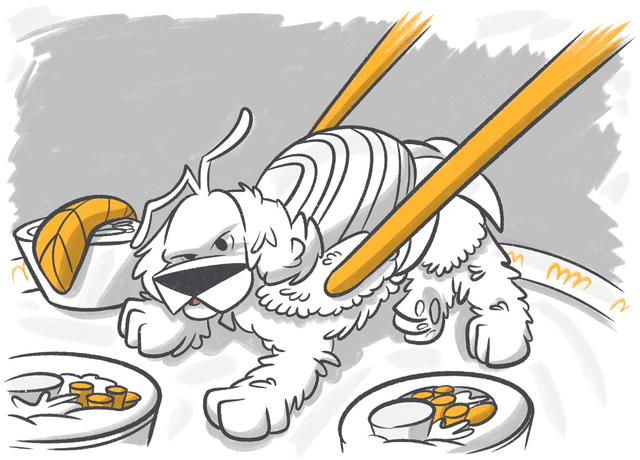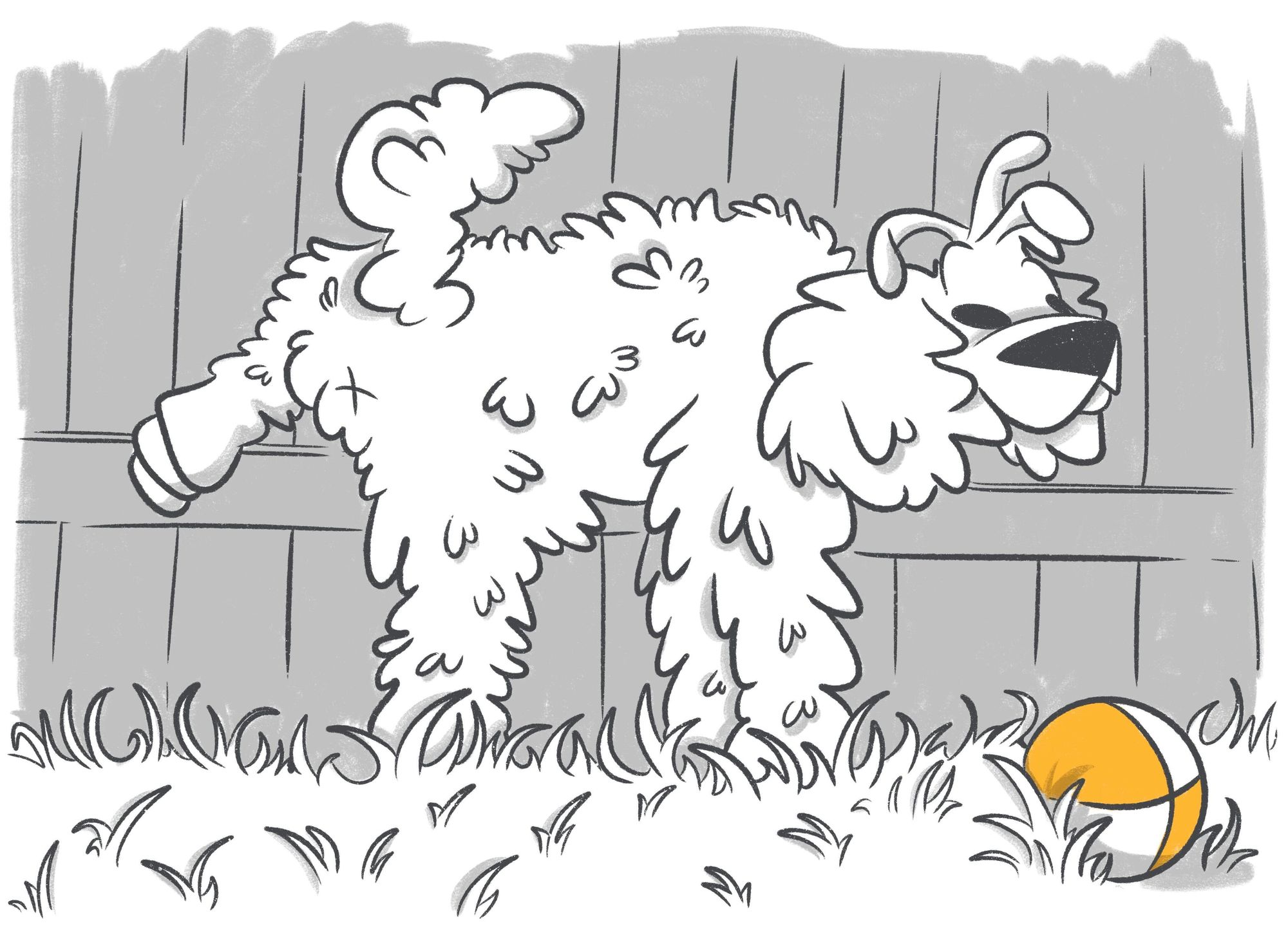We all want to serve up delicious, tasty, and nutritious meals for our pets, but it’s always advisable to do a little research before throwing the ingredients together. Rice, for example, is a common ingredient in many commercially produced dog foods. But can dogs eat the rice that you’d serve humans? If so, how much are they allowed to eat?
Let’s see what the experts say.
Stop Googling - Ask a Real Vet
Content:
- Is Rice Good for Dogs
- Can Dogs Eat Brown or Yellow Rice
- Can Dogs Have Jasmine Rice
- Is White Rice Good for Dogs
- Can Dogs Eat Basmati Rice
- Can Dogs Have Wild Rice
- FAQs
- Conclusion
Is Rice Good for Dogs
Rice is perfectly safe for dogs to eat, but just like many other ingredients, moderation is key. It’s a very common ingredient in dog food, but not all dogs can eat it. Rice allergies are possible, so if you notice any negative side effects following your pet's eating it, cease serving it up. Petcube’s Emergency Fund will cover you in the case of emergency allergic reactions, but I’m sure that’s a situation you’ll definitely want to avoid.
When cooking rice for your pampered pooch, these are the rules you should follow:
- Never give your dog raw, uncooked rice;
- Don’t cook the rice in butter, sauce, herbs, salt, or other additives;
- Steam for best results, or boil in plain water;
- Serve rice as a treat, only making up 10% of their daily calories;
- Diabetic dogs should avoid white rice;
- Allow the rice to cool before serving;
- Start off slowly, with a tiny piece at first.
Can Puppies Eat Rice
It’s not a good idea to feed your puppy rice without first consulting with a veterinarian. Young pups can have quite delicate stomachs, so big changes and new foods can overwhelm the system.
Can Dogs Eat Brown or Yellow Rice
Yes, dogs can eat brown rice, but it’s probably best to avoid yellow rice. It’s often made with turmeric, saffron, annatto, and other spices and flavorings that are potentially toxic.
Any kind of rice with added ingredients, even if it’s just salt and pepper, can be deadly for dogs. Black pepper, for example, can cause stomach upsets. Too much salt is toxic for dogs, cats, humans, and other animals. Cooking rice in butter should be avoided at all costs, too. Butter, especially human-sized portions of it, can result in vomiting, diarrhea, dehydration, and other issues.
If you spot your dog stealing a few grains of yellow rice from your plate on the pet camera while you’re distracted doing something else, the outcome isn’t likely to be bad. More than a teaspoon or two might cause adverse reactions, however.
Can Dogs Have Jasmine Rice
Jasmine rice is similar to white rice: processed, high in sugar, and lower in fiber in white varieties than brown. The smell that jasmine rice has isn’t due to extra flavorings or additives; instead, it is a naturally occurring aroma content that basmati rice, jasmine rice, and freshly baked bread share.
Is White Rice Good for Dogs
Yes, white rice is good for dogs… but brown rice is better.
Brown rice contains more fiber than white rice does, making it slightly more nutritious. However, it is a little tougher for our four-legged friends to digest the brown variety and can cause constipation. PetMD research shows that brown rice also wins in the glycemic index factor, too. White has a higher index, which can result in your dog experiencing blood sugar level spikes.
Brown rice contains amino acids, fiber, magnesium, B vitamins, carbohydrates, and manganese, which are vital (in moderation) for good health.
White rice is sometimes recommended for dogs that are experiencing digestive issues, such as an upset stomach. It’s best to have a chat with one of Petcube’s 24/7 vets before making big changes to your pet’s diet, especially if your dog has never eaten rice on its own before.
Can Dogs Eat Basmati Rice
Yes, dogs can eat basmati rice, but it should be treated exactly the same as white rice. There are a few differences you should know about, though. Basmati has a lower glycemic index and contains more calories and fiber than its white counterpart, which is easier to digest.
Basmati rice has the same kind of flavor profile as the jasmine variety, so you might find that your pooch doesn’t like it. As always, never flavor the rice with salt, pepper, or anything else. Only cook the rice by steaming or boiling it in plain water.
Can Dogs Have Wild Rice
In terms of nutritional value, wild rice is better than basmati, jasmine, white, and brown rice. Not only is it jam-packed with fiber, but it also contains calcium, phosphorus (essential), and antioxidants, which have been shown to reduce the chances of cancer.
FAQs
Is chicken and rice good for dogs?
Chicken and rice together are often recommended by vets to solve doggy digestive and bowel issues, but you should always check before making changes to your pet’s diet. If the meal is to solve those issues, the ratio should be two parts rice to one part chicken, for as long as your vet recommends. Otherwise, rice should be served as a treat in small amounts and in moderation.
Can dogs eat beans and rice?
Yes, beans and rice are dog-safe, but only when served up completely plain, with no flavorings or extra ingredients. This meal should be fed as a treat, unless otherwise directed by your vet.
Can dogs eat rice every day?
No, dogs shouldn’t eat rice every day, unless it’s part of a complete dog food or you create a homemade version that mimics it. Eating white rice every day can lead to ups and downs in blood sugar levels, brown rice every day can cause constipation, and eating any kind of rice every day can cause bloating and weight gain.
Conclusion
You should be commended for wanting to give your dog the best, but what’s best for humans isn’t what’s best for dogs. Many human ingredients are toxic to dogs, and several of them are common ingredients in packaged rice. In the wrong amounts and for the wrong dogs, rice can cause unwanted side effects and even long-term health issues.
Always consult with a vet before adding or removing food from your dog’s diet. It’s a simple rule, and it might just save their life.
Was this article helpful?
Help us make our articles even better








